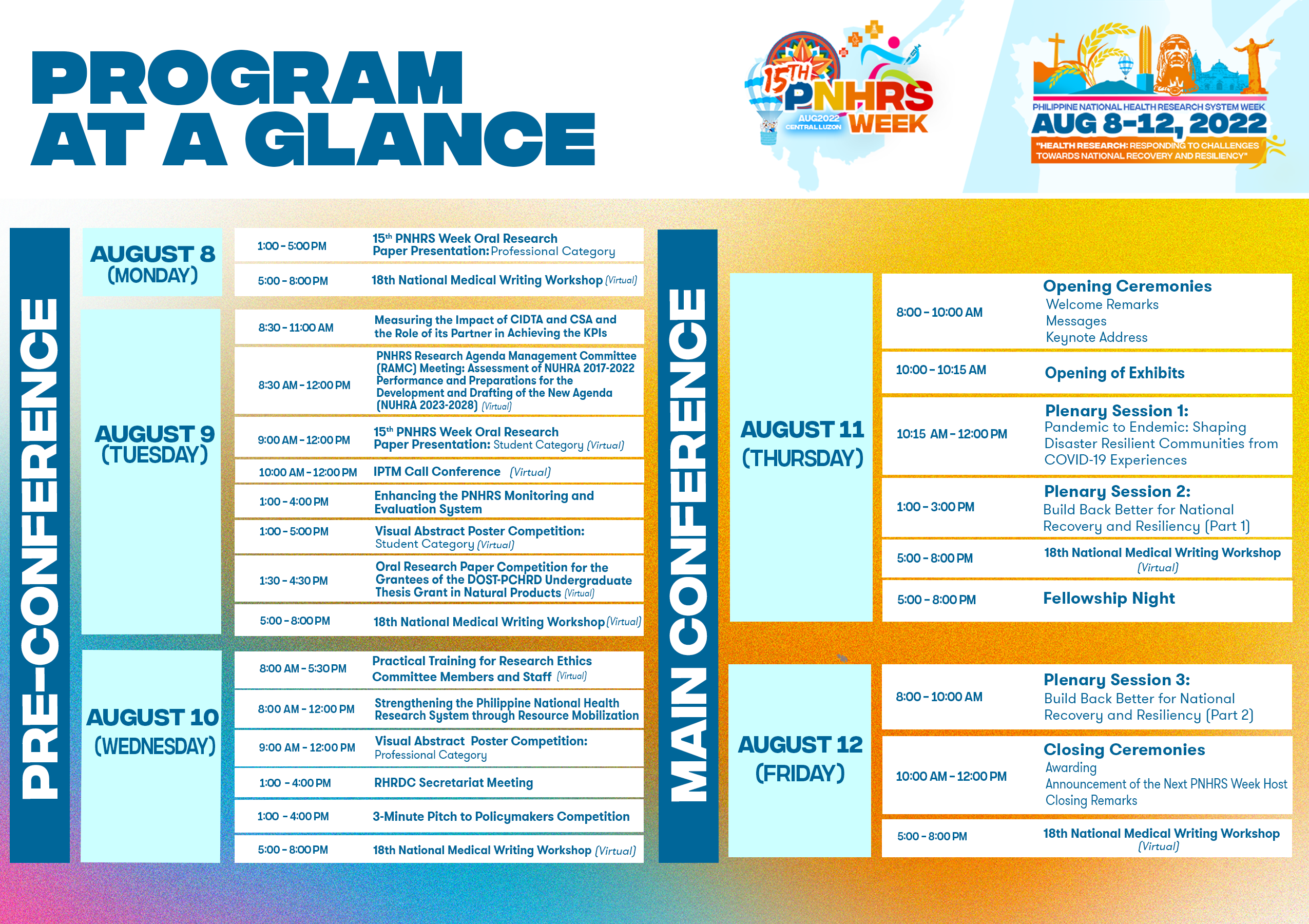- Christine Jane Gonzalez
- Latest News
- Hits: 1592
President Bongbong Marcos commits to prioritize passage of VIP and CDC bills

President Ferdinand Marcos, Jr. vows to push for the establishment of the Virology and Vaccine Institute of the Philippines (VIP) and the Center for Disease Control (CDC) in his keynote speech during the Philippine National Health Research System (PNHRS) Week on 11 August 2022 at Clark Marriott Hotel, Pampanga.
“As your president, I hope that my presence here today gives a clear signal that this administration continues to support your endeavors,” Marcos emphasized in his address to more than 200 health researchers representing the 17 regions of the country at the main conference of the PNHRS Week celebration.
Leading the VIP program, the Department of Science and Technology (DOST) has highlighted the importance of a research institute for virology in the Philippines, especially in future pandemic responses, as it will also provide more support such as human resource development through more scholarships and world-class research laboratories, especially in the regions.
“I have presented to both houses of Congress the proposed creation of the virology center of the Philippines so that we can consolidate, in a better way, all sources of research and new data,” Marcos stated.
“Secondly, of course, the creation of our own disease control center here in the Philippines so that we are ready for the unfortunate events, that this is not going to be the last pandemic, at least not in our lifetimes,” Marcos added. The CDC is envisioned to be the lead agency for developing communicable disease control and prevention initiatives, primarily responsible for controlling the spread of infectious diseases in the country.
Hosted by the Philippine Council for Health Research and Development (PCHRD) and the Central Luzon Health Research and Development Consortium, the PNHRS Week served as a platform for the health research community to share their insights and experiences in developing innovative solutions for achieving resilience through health R&D.
In his speech, the President also expressed his gratitude to the health research community for its contributions to the country’s pandemic response. “There is nothing more heroic in my mind than what you have achieved, not only from me but from all the millions who somehow reaped the benefit of your hard work,” Marcos furthered.
Also present at the celebration are the heads of the PNHRS implementing agencies, namely: Undersecretary Maria Rosario Vergeire of the Department of Health (DOH), Chancellor Carmencita Padilla of the University of the Philippines Manila, and Chairman J. Prospero De Vera III of the Commission on Higher Education (CHED). Meanwhile, DOST Officer-In-Charge Usec. Renato Solidum was represented by the DOST Region III Director Julius Caesar Sicat.
“Indeed, we look forward to a close partnership towards a resilient health system that fosters unity and cooperation not just with our four core implementing agencies and regional consortia, but across all stakeholders in health research,” PCHRD Executive Director Dr. Jaime Montoya, says in his PNHRS report delivered by Dr. Sicat.
Themed, “Health Research: Responding to Challenges to National Recovery and Resiliency,” the PNHRS Week celebration was also attended by virtual participants watching through Zoom and Facebook live. The PNHRS Week is celebrated every second week of August in accordance with Presidential Proclamation No. 1309 of June 2007.



